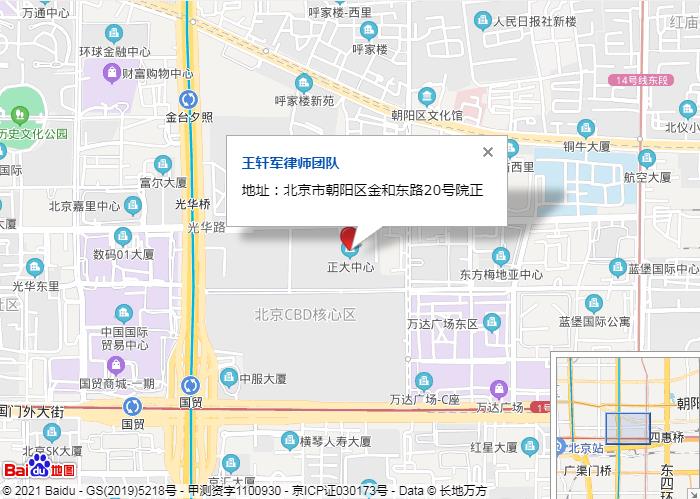
王轩军
当事人应受惯例的约束。这里所说的惯例包括当事人在合同中约定的惯例和其他可适用的惯例。当事人应受其合同约定惯例的约束,比较容易理解。但当事人如何受其他可适用惯例的约束,则理解起来有一定难度。根据通则第1.9条第(2)款及注释4和5、示例5等,当事人受合同未约定的其他可适用惯例约束,应注意下列两部分事项:
第一、这种惯例应是从事相关特定贸易之人广泛知悉并惯常遵守的惯例,因为这种惯例已经构成当事人之间合同的默示条款。
无论是国际惯例,还是国内的或地方性的惯例,都是如此。但是,纯粹地方性或国内性的惯例,不能适用于与外国人的交易中,只能在例外情况下,可以不经当事人提及便得以适用于与外国人的交易中。如,在特定商品交易所、贸易展览或港口存在的惯例,如果针对外国人也惯常地得到遵守,则应予以适用。再如,一商人已经在某一外国订立了大量类似合同,因此应受该国针对此类合同形成的惯例的约束。
第二、在特殊情况下惯例不适用。在当事人已经明确表示排除适用惯例,或惯例与被通则特别宣布为强制性的条款如诚实信用条款相冲突,此时惯例则不适用。此外,适用惯例不合理,则该惯例不应适用。一项惯例可能被某一特定贸易领域的大部分商人普遍遵守,但在特定情况下它的适用却可能是不合理的。其原因可能在于一方或双方当事人经营中遇到的特殊情况或所从事交易的特殊性。例如,在某一商品贸易领域存在这样一项惯例,如果商品瑕疵不能得到国际认可的商检机构的合法证明,则买方不能主张该商品有瑕疵。当买方 A 在目的港接收货物时,在该港口经营的唯一一个国际认可的商检机构正在罢工,并且请在最近的港口经营的另外一家商检机构费用又太高。在这种情况下,适用该惯例就不合理。因此,即使商品没有得到国际认可商检机构的证明, A 也可以主张其所发现的商品瑕疵。
通则通则第1.9条第(2)款及注释4和5、示例5的英文原文如下:
ARTICLE 1.9
(Usages and practices)
(2) The parties are bound by a usage that is widely known to and regularly observed in
international trade by parties in the particular trade concerned except where the application of such a usage would be unreasonable.
COMMENT
4. Other applicable usages
Paragraph (2) lays down the criteria for the identification of usages applicable in the absence of a specific agreement by the parties. The fact that the usage must be “widely known to and regularly observed [...] by parties in the particular trade concerned” is a condition for the
application of any usage, be it at international or merely at national or local level. The additional qualification “in international trade” is intended to avoid usages developed for, and confined to, domestic transactions also being invoked in transactions with foreigners.
Only exceptionally may usages of a purely local or national origin be applied without any reference thereto by the parties. Thus, usages existing on certain commodity exchanges or at trade exhibitions or ports should be applicable provided that they are regularly followed with
respect to foreigners as well. Another exception concerns the case of a businessperson who has already entered into a number of similar contracts in a foreign country and who should therefore be bound by the usages established within that country for such contracts.
COMMENT
5. Application of usage unreasonable
A usage may be regularly observed by the generality of business people in a particular trade sector but its application in a given case may nevertheless be unreasonable. Reasons for this may be found in the particular conditions in which one or both parties operate and/or the
atypical nature of the transaction. In such cases the usage will not be applied.
Illustration
5. A usage exists in a commodity trade sector according to which the purchaser may not rely on defects in the goods if they are not duly certified by an internationally recognised inspection agency. When A, a buyer, takes over the goods at the port of destination, the only internationally recognised inspection agency operating in that port is on strike and to call another from the nearest port would be excessively costly. The application of the usage in this case would be unreasonable and A may rely on the defects it has discovered even though they have not been certified by an internationally recognised inspection agency.
